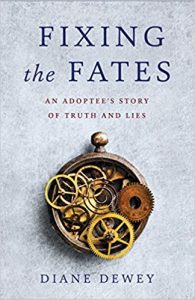Going With Your Gut: How Intuition Impacts Destiny
 Who hasn’t ignored their intuition? It’s such a bummer to find the consequences embarrassing or even dire. The surge of electricity that delivers a foretelling gets ignored due to reasoning. These conjured reasons have everything to do with wanting to be right and fear of being wrong.
Who hasn’t ignored their intuition? It’s such a bummer to find the consequences embarrassing or even dire. The surge of electricity that delivers a foretelling gets ignored due to reasoning. These conjured reasons have everything to do with wanting to be right and fear of being wrong.
“The intuitive mind is a sacred gift and the rational mind is a faithful servant,” Albert Einstein said. “We have created a society that honors the servant and has forgotten the gift.”
The word intuition comes from the Latin, intueri “to watch over” or to protect. It’s a form of guidance. Women’s intuition doesn’t mean men don’t have it. They’re just using their right brain.
Successful creatives whom I have interviewed on my radio show, “Dropping In,” invariably say that a gut feeling or resonance within themselves as their most reliable inner compass. At times intuition nudged me toward the right thing to do, despite my being “smart.”
What causes intuition? It’s a pattern match with the thoughts you’ve stored unconsciously. The psyche records everything, even unexpressed ideas. It’s likely you’ll never be able to explain your intuition. Yet it’s specifically tailored to your experience. Ironically, the supposedly flimsy logic of intuition knows more than any mental override. Still, you might not find reinforcement for it on Twitter. It’s personal.
Practice depends on taking a leap of faith. At first, it’s risky to trust it. It feels unfamiliar.
When I was approached to do my radio show, I was promoting my print book, “Fixing the Fates.” I had no idea that digital communication would be the currency of a COVID-19 world. There was just a feeling that I wanted to communicate with a wider audience. So I was lucky:
I chose to follow my intuition. It took seven months to come up with a concept that felt rock solid. I waited until time had worked its magic.
We all know that when opportunity knocks, it’s best to pounce. Fast or slow: Both are intuitive. Feed it by using it. If you don’t engage intuition, like a muscle, it will atrophy.
Descartes said, “I think therefore I am.” But that’s only partially true. Intuition runs counter to our thinking. We’re not sure. The ego doesn’t like uncertainty. Ego wants the facts and to be right. Without knowledge, it doesn’t want to follow. But a life of thriving depends on it.
We need to validate intuition even if it feels foolish, to respect its mysterious timetable. We’ve all had regrets: I should’ve listened, I should’ve done this or that. What good is a voice without an ear? It’s no longer enough to Just Do It. It’s really, Just Listen — then act accordingly. The success you’ll protect will be your own.
What are some times you followed your intuition?
—
DIANE DEWEY: Diane holds her BA from Villanova University, the Honors Program in Liberal Arts. She later completed a certificate program from The Art Institute of Philadelphia, working for the Solomon. R. Guggenheim Museum and the National Academy, before founding her own art appraisal firm. Diane earned a Master of Science in Mental Health Counseling from Capella University in 2015. She lives in St. Petersburg, Florida and near Schaffhausen, Switzerland with her husband and their rescue dog. Fixing the Fates is her first book. For more information about Diane, visit her website: http://dianedewey.com/
FIXING THE FATES
 The secrets, lies, and layers of deception about Diane Dewey’s origins were meant for her protection―but eventually, they imploded. Living with her family in suburban Philadelphia, Diane had grown up knowing she was born in Stuttgart and adopted at age one from an orphanage.
The secrets, lies, and layers of deception about Diane Dewey’s origins were meant for her protection―but eventually, they imploded. Living with her family in suburban Philadelphia, Diane had grown up knowing she was born in Stuttgart and adopted at age one from an orphanage.
She’d been told her biological parents were dead. Then, in 2002, when she was forty-seven years old, Diane got a letter from Switzerland: her biological father, Otto, wanted to bring her into his life. With that, her world shifted on its axis.
In the months that ensued, everybody had a different story to tell about Diane’s origins, including Otto when they met in New York City. She struggled to understand what was at stake with the lies. Like a private eye, she sifted through competing versions of the truth only to find that, having traveled throughout Europe and back, identity is a state of mind.
As more information surfaced, the myths gave way to a certain elusive peace; Diane discovered a tribe in her mother’s family, found a Swiss husband, gained a voice, and, for the first time, began to trust in the intuition that had nudged her all along. One-part forensic investigation, one-part self-discovery, Fixing the Fates is a story about seeing behind artifice and living one’s truth.
Category: Contemporary Women Writers, How To and Tips
























